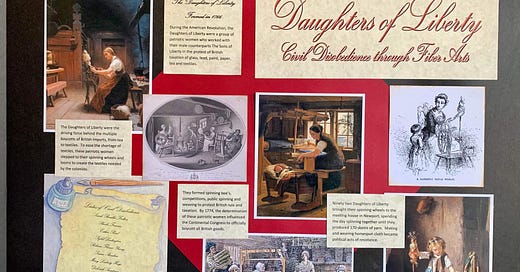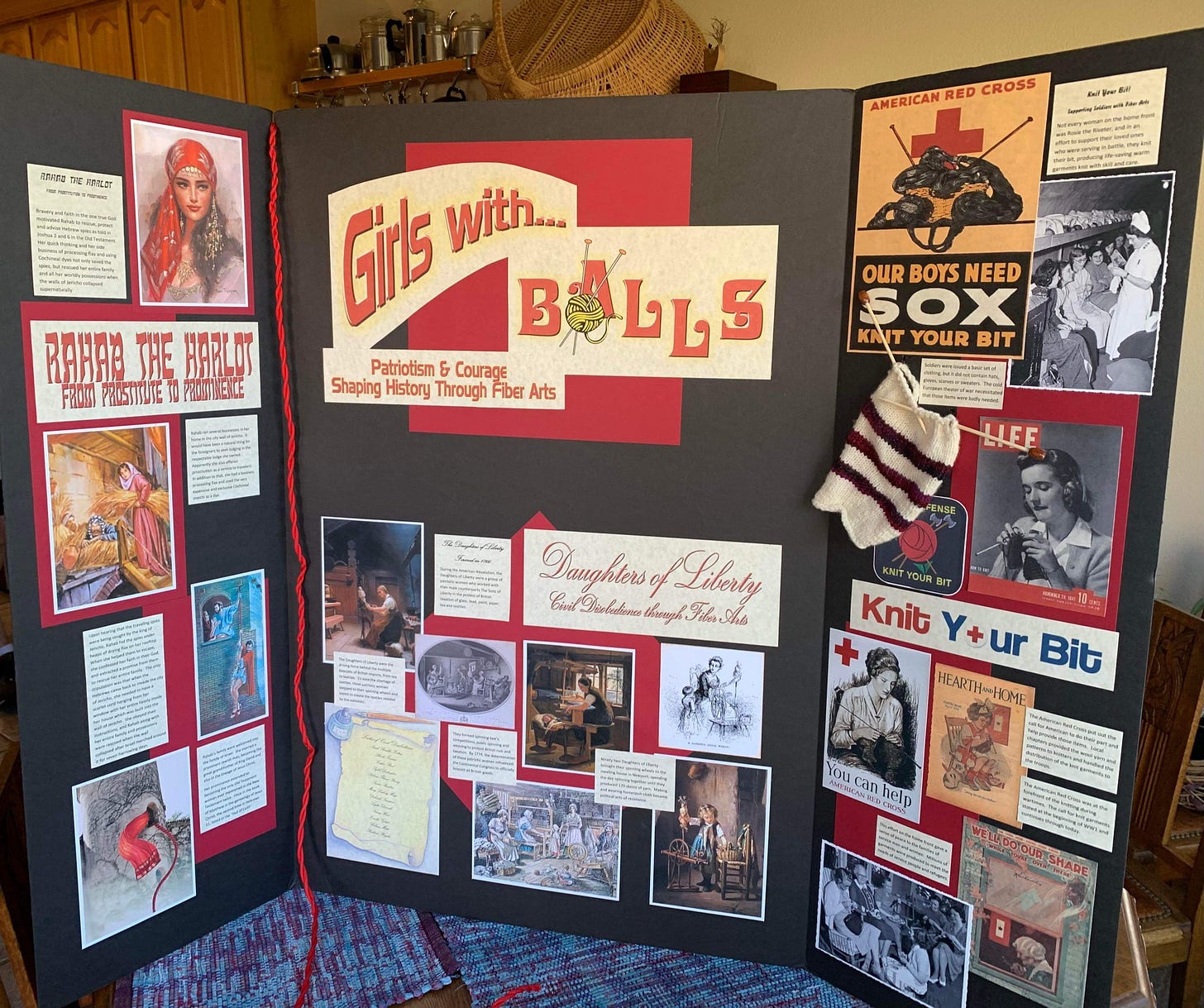I wrote this up several years ago as part of a educational display for our sheep to shawl competition at Estes Park Wool Market. Our display was called “Girls with Balls” and it was well received by the public.
I feel we should remember our protesting ancestors and remember their sacrifices for freedom as a country, as we go shortly to Vote! The continuation of our Constitutional Republic hangs in the balance as the slide into communism continues unabated.
Daughters of Liberty
The Daughters of Liberty is a group of patriotic women who worked with their counterparts, The Sons of Liberty, in the protest of both the Stamp Acts, and later, the Townshend Acts. Both Acts taxed the British imports to the colonies of glass, lead, paint, paper, tea, and textiles. Both groups felt that taxation without representation was unfair and detrimental to the colonies.
The Daughters of Liberty was both an organized group of women, and a general term used for any woman who defined herself as a patriot. There were many chapters throughout the New England area. There is some question as to the date the organization was formed, its estimated to be between 1766-1768. The first mention in the press of the group was in 1766.
The group was the driving force behind the multiple boycotts of British imports, from tea to textiles. In 1768 Boston merchants created an agreement to not import British products, thus creating shortages in the colonies. To ease the shortage of textiles the Daughters of Liberty stepped to their spinning wheels and looms to create the textiles needed by the colonists.
“Women took to their spinning wheels – what had been a chore for solitary women, spinning wool into yarn, weaving yarn into cloth, now became a public political act. Ninety-two ‘Daughters of Liberty’ brought their wheels to the meeting house in Newport, spending the day spinning together until they produced 170 skeins of yarn. Making and wearing homespun cloth became political acts of resistance.”
The American Revolution: A Concise History
Spinning bee’s, spinning competitions, public spinning, and weaving, all became ways to protest British rule and taxation. By 1774 the determination of these patriotic women influenced the Continental Congress to officially boycott all British goods. As the colonies crept closer to all-out war with Britain, the need for uniforms grew, and our foremothers filled that need with handspun, and woven cloth.
Let us remember these ladies of civil disobedience and their many contributions to our country….
Sarah Bradlee Fulton, Phoebe Fraunces, Esther Reed, Sybil Ludington, Rebecca Flower Young, Susan Boudinot, Mary Ludwig Hays, Deborah Sampson, Lydia Darrah, Nancy Hart, Emily Geiger, Rebecca Motte, Prudence Wright, and so many other women who’s names have been lost to history.
Yet not alone by men reclaimed
Brave women too achieved their part
With courage, love and loyalty,
They bore war’s cruel smart
We turn no printed page to-day,
Their gracious deeds to magnify
Within our hearts their memories rest,
Their influence cannot die.
We raise this modest table stone
Our sister’s name and fame to keep
The impress of her noble life
Ends not with a dreamless sleep –
May we be wise and ever prize,
The lessons taught us here,
That freedom comes by sacrifice
And duty knows no fear.
Mary Jane Seymour
They were American Patriots, young and old, rich and poor, north and south.
They are The Daughters of Liberty






What a tribute!